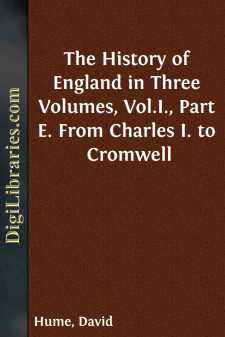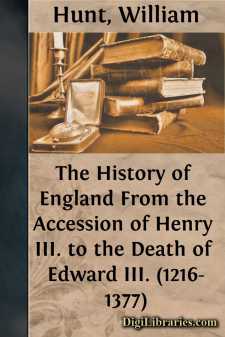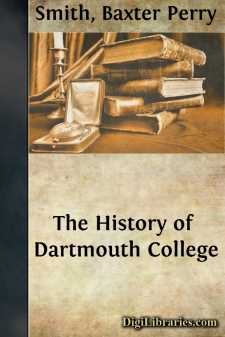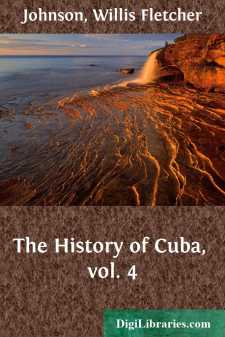History
- Africa 30
- Americas (North Central South West Indies) 50
- Ancient 68
- Asia 58
- Australia & New Zealand 8
- Canada 41
- Caribbean & West Indies 1
- Civilization 20
- Eastern Europe 12
- Europe 310
- Expeditions & Discoveries 60
- General 77
- Historical Geography 1
- Jewish 9
- Latin America 3
- Medieval 8
- Middle East 13
- Military 248
- Revolutionary 8
- Study & Teaching 5
- United States 353
- Western Europe 56
- World 13
History Books
Sort by:
by:
David Hume
The religion of the Britons was one of the most considerable parts of their government; and the druids, who were their priests, possessed great authority among them. Besides ministering at the altar, and directing all religious duties, they presided over the education of youth; they enjoyed an immunity from wars and taxes; they possessed both the civil and criminal jurisdiction; they decided all...
more...
by:
David Hume
The ill humor of the commons, thus wantonly irritated by the court, and finding no gratification in the legal impeachment of Buckingham, sought other objects on which it might exert itself. The never-failing cry of Popery here served them in stead. They again claimed the execution of the penal laws against Catholics; and they presented to the king a list of persons intrusted with offices, most of them...
more...
by:
David Hume
An act was passed for the security of the king's person and government. To intend or devise the king's imprisonment, or bodily harm, or deposition, or levying war against him, was declared, during the lifetime of his present majesty, to be high treason. To affirm him to be a Papist or heretic, or to endeavor by speech or writing to alienate his subjects' affections from him; these...
more...
by:
David Hume
The bishop of Valence, a prelate of the house of Savoy, and maternal uncle to the queen, was his chief minister, and employed every art to amass wealth for himself and his relations. Peter of Savoy, a brother of the same family, was invested in the honor of Richmond, and received the rich wardship of Earl Warrenne; Boniface of Savoy was promoted to the see of Canterbury: many young ladies were invited...
more...
by:
David Hume
Had the subscribers of this zealous league been content only to demand a toleration of the new opinions, however incompatible their pretensions might have been with the policy of the church of Rome, they would have had the praise of opposing tyrannical laws, enacted to support an establishment prejudicial to civil society: but it is plain that they carried their views much further; and their practice...
more...
by:
David Hume
Henry was not ignorant of these intentions of his enemies, and he prepared himself for defence. He ordered troops to be levied in different parts of the kingdom, and put them under the command of the duke of Bedford and earl of Oxford. He confined the marquis of Dorset, who, he suspected, would resent the injuries suffered by his mother, the queen dowager; and, to gratify the people by an appearance of...
more...
CHAPTER I THE FOUNDATIONS OF ENGLAND 55 B.C.—A.D. 1066 "Ah, well," an American visitor is said to have soliloquized on the site of the battle of Hastings, "it is but a little island, and it has often been conquered." We have in these few pages to trace the evolution of a great empire, which has often conquered others, out of the little island which was often conquered itself. The mere...
more...
by:
William Hunt
CHAPTER I. THE REGENCY OF WILLIAM MARSHAL. When John died, on October 19, 1216, the issue of the war between him and the barons was still doubtful. The arrival of Louis of France, eldest son of King Philip Augustus, had enabled the barons to win back much of the ground lost after John's early triumphs had forced them to call in the foreigner. Beyond the Humber the sturdy north-country barons, who...
more...
INTRODUCTION. The most valuable part of a nation's history portrays its institutions of learning and religion. The alumni of a college which has moulded the intellectual and moral character of not a few of the illustrious living, or the more illustrious dead,—the oldest college in the valley of the Connecticut, and the only college in an ancient and honored State,—would neglect a most fitting...
more...
CHAPTER I Cuba for Cuba must be the grateful theme of the present volume. We have seen the identification of the Queen of the Antilles with the Spanish discovery and conquest of America. We have traced the development of widespread international interests in that island, especially implicating the vital attention of at least four great powers. We have reviewed the origin and development of a peculiar...
more...











